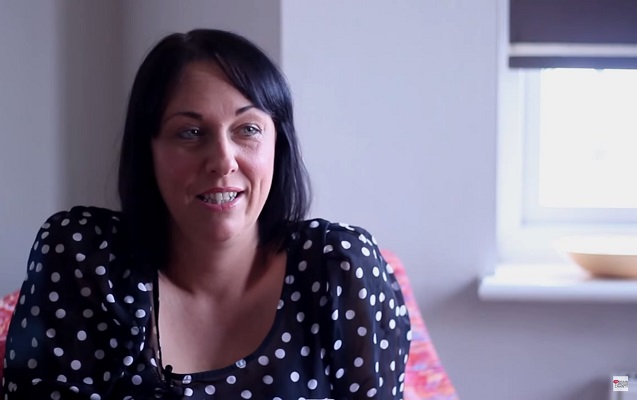Reasonable adjustments if you have a brain tumour
Reasonable adjustments are changes that your employer has to make for you if your brain tumour puts you at a disadvantage at work. Here, we provide some examples.
Depending on how your brain tumour affects you, you may have the right to reasonable adjustments at work . We have listed some suggestions below of the types of reasonable adjustments you may want to ask for at work. You can use these suggestions to start a conversation with your employer about adjustments that could help you in the workplace.
Please note this list is not exhaustive and not all will necessarily apply to you.
Psychological or social side effects

Expert benefits & money advice
Last year our free Benefits and Money Clinic helped 332 members of our community claim over £950,000!
Reasonable adjustments for physical side effects
Fatigue
If you experience fatigue as a result of your brain tumour, some examples of reasonable adjustments you may ask for include:
- Having a phased return to work after treatment or time off
- Doing part-time or adjusted hours. For example, it may be easier for you to travel at quieter times or plan work around times when you have more energy)
- Having a place to go and rest when needed (e.g. a first aid room or other comfortable place)
- Taking extra breaks
- Changing to lighter duties
- Being able to work from home
Mobility, balance and coordination
If your balance, coordination or mobility are impacted, you could ask for:
- A desk or workspace on the ground floor
- A reserved parking space near to the entrance
- Suitable access to your workplace
- A planned emergency evacuation procedure which meets your needs
- A change in your duties to those that don’t involve much standing or which don’t involve co-ordination
- Handrails in corridors
- HSE (Health & Safety Executive) considerations
- Extra time to complete tasks involving co-ordination
- The ability to record work onto voice recorder/ voice-activated software rather than type
- The use of a laptop rather than pen and paper
Vision
If you experience sight problems due to your brain tumour, you could ask for:
- Written information to be given in larger print
- Optical devices, such as magnifiers, binoculars
- Improved lighting around your workspace
- The use of iPads and other devices that allow text size to be increased
- Speech/reading software, plus headphones
Hearing
If your hearing is impacted by your brain tumour, some of the reasonable adjustments you could ask for include:
- A quieter place to work
- Written instructions as well as or instead of spoken
- Textphones
Reasonable adjustments for cognitive side effects
Some people experience cognitive changes to their brain tumour or treatment, which can include an impact on concentration, communication or memory. Below are some examples of adjustments that your employer could make if you experience these.
Attention or concentration
- Break down tasks and allow completion of these in small, manageable chunks
- Move your workspace to a quieter area
- Set you realistic targets
- Allow you to use clocks/timers
Communication difficulties
- Use short, concise repeated instructions
- Give you extra time to respond
- Allow you to use an iPad to write down questions/answers
- Where possible, remove background noise when communicating
Memory or learning new things
- Repeat, write down or record instructions
- Break down tasks into small, manageable chunks
- The use of memory aids (e.g. reminders on mobile phone, camera on mobile phone)
Processing speed
- Give extra time to understand and respond
- Provide instructions written down in single steps
- Give templates and examples
- Give fewer tasks at one time
Reasoning and problem solving
- Explain ideas in a concrete way
- Give analogies/examples
Planning or organisational skills
- Make use of clocks, alarms, mobiles
- Use colour coding to separate tasks/parts of tasks
- Use checklists with time estimate for each step
Reasonable adjustments for physiological side effects
Physiological side effects can vary between individuals and may include seizures , changes in appearance (e.g. due to skin changes, weight gain, hair loss, surgery scars) and pain. You may wish to ask your employer for the following reasonable adjustments based on these:
Seizures
- Staff training in handling seizures
- A separate, private area if you feel a seizure coming on
- A buddy to stay with you during a seizure and to time the seizure
- Plans to avoid any triggers you are aware of
Changes in appearance
- Working alongside someone else temporarily to build up your confidence (if your job involves dealing with the public)
- Counselling to help you adjust to the change in appearance
- Changing duties if you are uncomfortable with face-to-face meetings with clients or the public
- Working from home if preferred.
Personal facilities
- Providing an accessible toilet
- Providing a desk/workplace near to the toilet
- Providing a shower
Temperature regulation
- Relaxation of dress code
- Colleagues aware of room temperature and the need to open/close window or turn air conditioning on/off, as appropriate
- A desk or workspace away from window
- Breaks to take medication
Pain or peripheral neuropathy
- Extra time to complete tasks involving writing/typing or holding things
- A place to go to relax, when needed
Reasonable adjustments for psychological or social side effects
Psychological or social side effects are not uncommon for people living with a brain tumour. This can include an impact on your mental health or personality . There are some examples below of adjustments you could ask your employer for, to help you cope with this.
Mental health or psychological effects
- An employee assistance programme (if provided)
- Professional counselling
- A trusted buddy to talk to
Behaviour or personality changes
- Ensure the workspace is in a calm environment
- A separate area to go and cool off if needed
- Plans to avoid any triggers you are aware of
- Regular sessions with employee assistance programme (if provided) or professional counsellor
Social impact
- Make a plan for if, when, how and what to tell colleagues
- Raise awareness of side-effects amongst colleagues (with your permission)
- Provide necessary training (e.g. in seizure management)
- Maintaining contact when not in work (if that is what you want, and on your terms)
Other examples of reasonable adjustments
There are lots of other adjustments you may ask for, and not all are listed here. But, here are some additional examples you may wish for which aren’t necessarily related to a specific brain tumour side effect.
- Time off for medical appointments and treatment
- Changing your performance targets
- Working from home (e.g. if treatment, such as chemotherapy, means you are at greater risk of catching infections)
- Help with transport to work
- A support worker to help you in the workplace
- Special aids and equipment
- A private area to take medications
- An occupational health assessment (if provided) to create a return-to-work plan
- Changing your job description to remove tasks that you would find difficult.
- Focussing on strengths (what you can do, rather than what you can’t)
- Planning for work events/training
Support and Information Services
Research & Clinical Trials Information
You can also join our active online community.
In this section

Get support
If you need someone to talk to or advice on where to get help, our Support and Information team is available by phone, email or live-chat.
Recommended reading

I struggle to work
Tasmin is a single mother of three children, and lives in Cheshire. She was diagnosed with a meningioma in 2013 and underwent a craniotomy. She is a midwife but has struggled with work and finances since the onset of her tumour.
Share your experiences and help create change
By taking part in our Improving Brain Tumour Care surveys and sharing your experiences, you can help us improve treatment and care for everyone affected by a brain tumour.